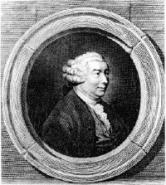
David Hume examines the pride of the turkey (and other creatures) (1739)
About this Quotation:
As Thanksgiving arrives one’s thoughts naturally turn to what the great philosophers of the past had to say about turkeys. In his early and great A Treatise of Human Nature (1739) Hume compares the emotions felt by humans and a selection of animals and in a discussion concerning pride and humility refers to the swan, the turkey, the peacock. What might seem a little odd, given the modern turkey’s reputation for stupidity, is that Hume considers it to be one of the “nobler kind” and furthermore, that it is prideful because of its “beauty” (but only in the male). Think on this as you munch on a turkey leg this Thanksgiving.
Other quotes from this week:
- 2009: Herbert Spencer on the pitfalls of arguing with friends at the dinner table (1897)
- 2005: Thomas Gordon gives a long list of ridiculous and frivolous reasons why kings and tyrants have started wars which have led only to the enslavement and destruction of their own people (1737)
- 2004: Erasmus argues that Philosophizing is all very well but there is also a need for there to be a Philosopher of the Kitchen (1518)
Other quotes about Food & Drink:
- 2009: Herbert Spencer on the pitfalls of arguing with friends at the dinner table (1897)
- 2004: As if in answer to Erasmus’ prayer, Spencer does become a Philosopher of the Kitchen arguing that “if there is a wrong in respect of the taking of food (and drink) there must also be a right” (1897)
- 2004: Erasmus argues that Philosophizing is all very well but there is also a need for there to be a Philosopher of the Kitchen (1518)
- 2004: Adam Smith on how Government Regulation and Taxes might drive a Man to Drink (1766)
24 November, 2008
 | David Hume examines the pride of the turkey (and other creatures) (1739) |
The great Scottish philosopher David Hume (1711-1776) in hias Treatise of Human Nature (1739) has an interesting observation on the pride and vanity of the male turkey:
’Tis plain, that almost in every species of creatures, but especially of the nobler kind, there are many evident marks of pride and humility. The very port and gait of a swan, or turkey, or peacock show the high idea he has entertain’d of himself, and his contempt of all others. This is the more remarkable, that in the two last species of animals, the pride always attends the beauty, and is discover’d in the male only.
The full passage from which this quotation was taken can be be viewed below (front page quote in bold):
In order to this we must first shew the correspondence of passions in men and animals, and afterwards compare the causes, which produce these passions.
’Tis plain, that almost in every species of creatures, but especially of the nobler kind, there are many evident marks of pride and humility. The very port and gait of a swan, or turkey, or peacock show the high idea he has entertain’d of himself, and his contempt of all others. This is the more remarkable, that in the two last species of animals, the pride always attends the beauty, and is discover’d in the male only. The vanity and emulation of nightingales in singing have been commonly remark’d; as likewise that of horses in swiftness, of hounds in sagacity and smell, of the bull and cock in strength, and of every other animal in his particular excellency. Add to this, that every species of creatures, which approach so often to man, as to familiarize themselves with him, show an evident pride in his approbation, and are pleas’d with his praises and caresses, independent of every other consideration. Nor are they the caresses of every one without distinction, which give them this vanity, but those principally of the persons they know and love; in the same manner as that passion is excited in mankind. All these are evident proofs, that pride and humility are not merely human passions, but extend themselves over the whole animal creation.
The causes of these passions are likewise much the same in beasts as in us, making a just allowance for our superior knowledge and understanding. Thus animals have little or no sense of virtue or vice; they quickly lose sight of the relations of blood; and are incapable of that of right and property; For which reason the causes of their pride and humility must lie solely in the body, and can never be plac’d either in the mind or external objects. But so far as regards the body, the same qualities cause pride in the animal as in the human kind; and ’tis on beauty, strength, swiftness or some other useful or agreeable quality that this passion is always founded.